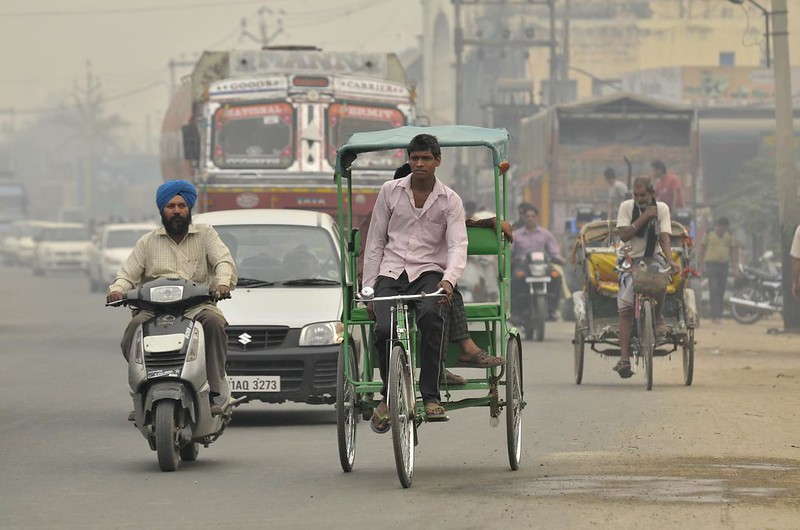Wadhwani AI: Fighting Poverty in India


Reducing the Spread of Tuberculosis
India has the highest burden of tuberculosis (TB) cases globally:
- India accounts for 27% of recorded TB cases
- In 2022, 2.82 million new cases were documented
- 331,000 deaths were due to TB
The National Tuberculosis Elimination Programme (NTEP) is the Indian governmental initiative to reduce the spread of TB. The Transformative Research and Artificial Intelligence Capacity for Elimination of Tuberculosis (TRACE-TB) – Wadhwani AI’s umbrella term for several AI programs they are using to help combat TB – aims to improve upon diagnostic tools available and speed up treatment processes.
One of these goals is to improve upon the screening tools available to diagnose TB. These screening tools tend to be expensive, rely on specialist training and require a laboratory setup. Because of this, many TB patients go unrecorded because these screenings simply are not accessible or are under too much demand. Wadhwani AI’s solution is an AI-based diagnostic tool that analyses the sound of a patient’s cough and identifies probable cases of TB. This tool is available as an app, both for health care workers and for people looking to test at home.
Line Probe Assay
Another branch of TRACE-TB is improving the expediency of recording the results of Line Probe Assay (LPA) strips. LPA strips help diagnose cases of drug-resistant TB. Manual testing for this is done at one of only 64 labs across India, which are able to perform around 400,000 tests annually. Not only is this a highly insufficient rate of testing, but the manual process is subject to clerical issues. Due to this overburdened system, many cases will have significant delays in their treatment. Using AI to rapidly evaluate LPA strip results greatly improves upon this response time. This initiative uses a “human-in-the-loop” as part of the process, having someone double-check when the algorithm is uncertain about the interpretation of the results.
Helping Cotton Farmers Fight Pest Infestations
Across the globe, the primary crop for almost 100 million farmers is cotton. Ninety percent of these farmers are from smallholding farms in poorer countries. India is the world’s largest cotton producer (26% of the global output), and is a massive source of employment in the country. Not only are there 5.8 million cotton farmers in India, but a further 40 to 50 million work in the processing or trading of cotton.
Cotton is extremely vulnerable to pest infestations, and on average, Indian farmers lose around 30% of their crops annually. The acuteness of these losses are due to a combination of factors. Firstly, manually collecting data on infestations and then analysing it is very time-consuming, and often by the time that is done any counter-measures may no longer be effective. Secondly, there is a widespread lack of education amongst farmers about correct pesticide usage: using the wrong chemicals or spraying the incorrect amount can prove redundant to combating the infestation, and can be detrimental to the health of the farmers and the environment.
How It Works
Wadhwani AI’s initiative to help cotton farmers fight pest infestations is the CottonAce app. It is easily accessible, works offline and is available in nine languages.
Farmers install pheromone traps amongst their crops, which trap pests. They then upload images of the pests to the app and the AI algorithm identifies the pest and calculates how severe the infestation is. CottonAce generates instantaneous recommendations on which pesticide to use and how to best apply it. The app then shares the data with nearby farmers, creating an early-warning system for the area. CottonAce is a great example of a simple, easily scalable and highly accessible tool that can improve the security of the livelihoods of millions of people, and an easy-to-replicate example of using AI to fight poverty in India.
Assessing Students’ Literacy Skills
Vaachan Samiksha is an AI-based tool for assessing the oral literacy of students. India’s Annual Status of Education Report 2023 showed that more than half of grade five students struggled with reading texts designed for children aged three years below them. Typically, oral fluency is assessed by teachers individually, having students read a passage and then manually counting how often they mispronounce words. With millions of students to consider, this process is incredibly inefficient, fallible and provides very little information about the students’ needs. Wadhwani AI hopes to speed up this process and better gauge what individual students need via Vaachan Samiksha.
In partnership with the Gujarat government, 33,000 schools across the region are currently using the tool. Wadhwani AI developed an AI speech-to-text model that provides instantaneous transcription of the student during the literacy assessment and identifies the mispronounced terms. Multiple students are able to be assessed simultaneously, and the program can efficiently detect patterns in incorrect pronunciation and difficulties. This enables teachers to understand how and where each student is struggling with their oral-literacy, and helps to identify which students might need additional support. As of March 2025, the app has helped make more than 3.6 million assessments across Gujarat.
Closing Thoughts
Wadhwani AI’s work is a reminder that artificial intelligence isn’t only about high-tech labs or futuristic applications—it can be a powerful tool for solving real-world problems in low-resource settings. By designing practical, scalable solutions rooted in local needs, Wadhwani AI is helping shape a future where technology aids the critically underserved. As their programs continue to develop, they offer a compelling model for using AI to fight poverty in India and the potential for tackling global poverty with similar initiatives.
– Reuben Avis-Anciano
Reuben is based in Oxford, UK and focuses on Technology and Solutions for The Borgen Project.
Photo: Flickr
